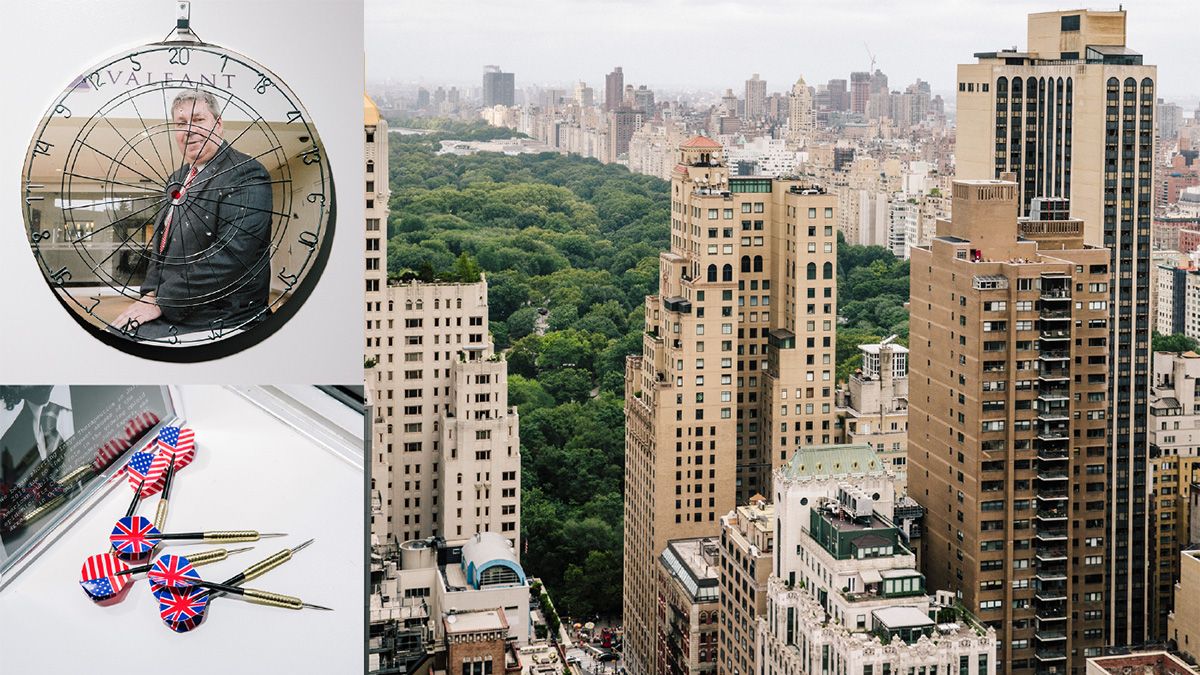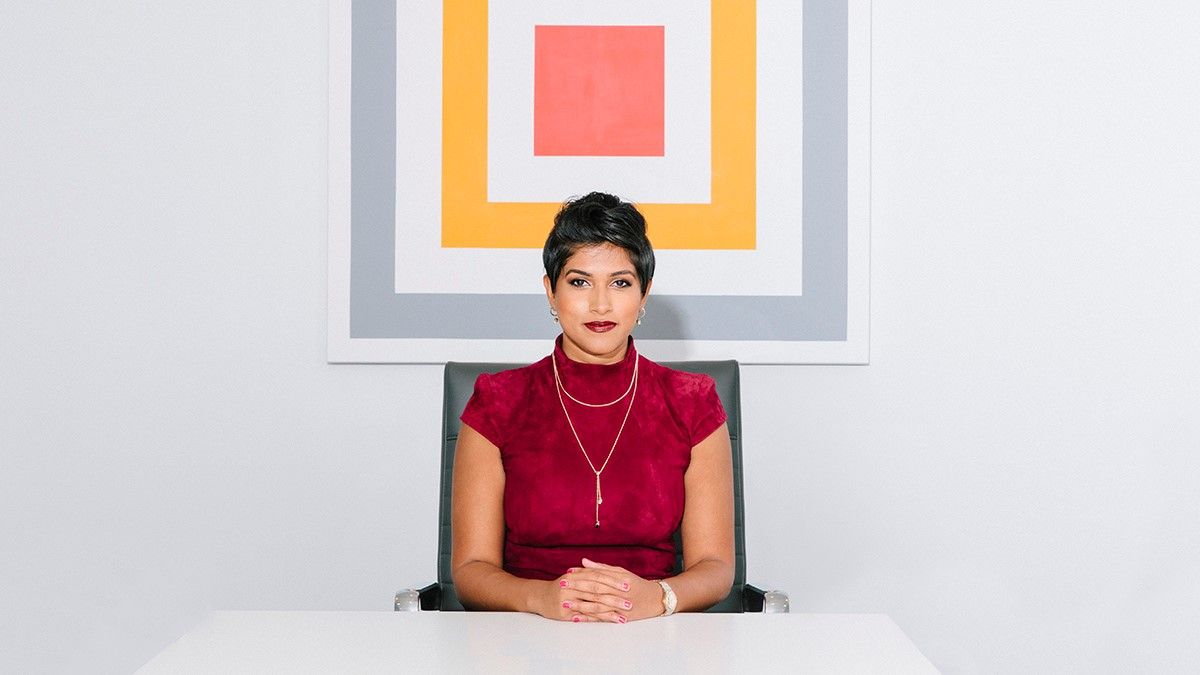By early 2015, Valeant Pharmaceuticals [VRX] had become a colossus with a value of around $90bn. By the end of the year, the stock market giant had turned into something else entirely: the personification of US corporate greed.
Few downfalls in business history have been as sudden or as steep. In order to fuel growth in revenue that wasn’t achievable through increased sales, the pharmaceutical company started hiking the prices of its drugs: pills to treat diabetes were increased from $572 to $5,148; the cost of a lead poisoning drug suddenly jumped by 2,700%. Many people that needed the medicines – some of them life-saving drugs that had been available for decades – could no longer afford them.
Hillary Clinton, then running for the US presidency, described the price hikes as “outrageous” and vowed to “go after” Valeant. A worldwide scandal ensued, exposing the dark side of the US healthcare system and indicting some of of the world’s biggest financial players. In no time, 90% of Valeant’s value disappeared.
“This is my nighttime reading,” says Fahmi Quadir, holding a thick stack of documents. Her office, high up in a New York skyscraper looking out across the city, is dimly lit; it is late into the night and everyone else on the floor has gone home. “Some people like to read Buffett biographies, some like to read Fifty Shades of Grey. But I spent the last two years of my life reading every single publicly available document on Valeant.”
The scene features in the third episode of ‘Dirty Money’ – an explosive Netflix documentary series that looks at the people and companies whose greed is extreme and unconcerned by ethical boundaries.
When drugmaker Valeant began to grow at dizzying speeds, investors were thrilled. But just a few sceptics around the world – maybe six or seven; Quadir chief among them – realised something was very wrong.
“It’s an absolute tragedy how few women – and, on top of that, how few women of colour – make it to running a hedge fund”
Before the price hikes, Quadir’s “forensic accounting” and other research methods led her to spot warning signs with the company. In what could be a predictable story about corporate overreach becomes a gripping insight into Wall Street excess, with Quadir stealing the show as a wunderkind in short-selling.
This is something of a role reversal. Rather than looking like a vulture profiting from a company’s downfall, as short-sellers are increasingly portrayed, Quadir comes across as a proponent of justice with an unwavering moral compass.
And justice, in the most high profile case of her career, came to a value of hundreds of millions. Back then, Quadir was working as an equity analyst for Krensavage Asset Management, a New York-based hedge fund that focuses on healthcare, and campaigning for the fund to ramp up its wager against Valeant.
When Valeant plunged, Krensavage cashed in; it was the fund’s largest winner in 2016, propelling the company to a 14% gain. The fall meanwhile left the darling of Wall Street Bill Ackman, who was unwavering in his backing of Valeant, with a $2.8bn hole in his firm’s wallet.
“The Netflix documentary made people aware of the kinds of corporate scum and incredibly unethical companies we are up against,” Quadir tells Opto. “Many whistleblowers have come to me since.”
Quadir has since struck out on her own, aiming to raise $200m for her new hedge fund Safkhet Capital. While she hasn’t reached this figure yet, Safkhet has been up and running since January.
From her new office overlooking Central Park aided by a handful of staff – and motivated by a dartboard with the face of Valeant’s ex-CEO printed on it – Quadir has numerous new investigations on the go. At the right time she will short a marked company, make her findings public and, most likely, take home the winnings.

Quadir’s rise is remarkable not just because of her age – she’s still in her 20s – but also because of her background and gender. She was raised in New York by parents who emigrated from Bangladesh. White men still fill the vast majority of investment positions on Wall Street. Across the industry, less than 5% of senior investment roles in hedge funds are held by women.
“When you’re a short-seller, you always have enemies”
“It’s an absolute tragedy how few women – and, on top of that, how few women of colour – make it to running a hedge fun,” says Quadir. “I want [to show] that people of my gender and with my kind of background can make it. Institutions talk a good game when it comes to diversity, but I don’t see much action.”
She has a surprising educational background, too. Earning a bachelor’s degree at Harvey Mudd College in California, she graduated in mathematics and biology. At college, Quadir earned extra income through poker and blackjack. “I’m a mathematician, so counting cards isn’t hard,” Quadir says. “It was fun but it wasn’t very intellectually stimulating. A couple thousand bucks here and there – small change now but helpful back then.”
It was also back then when she invested in Bitcoin. “I was at a stem school, everyone did it,” she says. “I was an early collector and had a couple of coins but offloaded them in 2012. Had I had hung on to them, maybe I wouldn’t have needed to start my fund!”
While Quadir made her name on Wall Street, she’s never taken a single business or finance class. “The industry sort of found me. Never in my wildest dreams did I think I would ever become a short-seller,” she says. Side stepping Wall Street on her way up has enabled her to “look more closely at where the bodies are buried,” she says, “rather than being fed stories that management want you to hear.”
Her first step to becoming a short-seller came when she was offered an initially temporary role at Deallus. The focus of the work was corporate intelligence, and the firm needed someone comfortable with numbers.
It was around this time Quadir first discovered Valeant, noticing its huge margins, and she really started feeling at home when carrying out the investigative style of working that has since become her hallmark.
"Short-selling has almost become a dying art over the past decade, yet he believed in my ideas and encouraged me into it."
But still, she had no real aspirations of working in finance long term. After three years at Deallus, “it became less about the nitty gritty research I love doing and more about rainmaking, selling projects and finding new ones.”
She left the company and moved to Krensavage. “When I started out, no one expected me to change the fund overnight ” she says. “But quickly it became clear that my methods were working – and working really well.”
Marc Cohodes, the legendary short-seller nicknamed the “scourge of Wall Street”, was introduced to her. “He took me under his wing,” says Quadir. “He was able to see something in me before even I recognised it. Short-selling has almost become a dying art over the past decade, yet he believed in my ideas and encouraged me into it. I had been working as a lone wolf until then. Now he’ll always be my mentor and something of a life coach.”
John Hempton, another legendary short-seller, also spotted her talent around this time. Few people in the world were questioning Valeant. “We were mostly outsiders. We didn’t need to believe the bullshit,” Hempton said on the Netflix documentary. “Of all the people I spoke to, [Quadir] was the person with the most original observations.” Cohodes, meanwhile, has described her as “ruthless”, “dogged” and “cold-blooded”.
Quadir will need these qualities if she is to survive the tough reality of betting against companies. Hedge funds charging high fees and yielding unimpressive returns have recently come under fire. Fewer startups launched in 2016 than in any year since the financial crisis, and numbers dropped further last year.

“That’s a good question,” she says. “I didn’t expect to so soon. I only had two years worth of a liquidated retirement fund to do it with. My parents were worried when I told them. They suggested I move back in with them!”
“I didn’t want to work for someone else again. I wanted to run the strategy on my own terms.”
But the timing felt right. “I didn’t want to work for someone else again. I wanted to run the strategy on my own terms. And it’s hard to find the relevant experience I needed anywhere else. Fortunately I’ve started with a group of very patient and supportive partners.”
While corporate activists take most of the credit for cleaning up companies, short-sellers can also play an important activist role. After all, the US Securities and Exchange Commission often first learns about a fraud after it’s been exposed by a short-seller.
“Sometimes people forget that short-sellers have real value,” says Quadir. “Short-sellers have done the hard digging required to expose frauds for decades. In many ways, we are the market’s detectives.”
Quadir compares aspects of her job to that of an investigative journalist, asking the kinds of questions no one else is – “but we need to execute on a story rather than just report on it” .
She continues: “I’ve always loved digging. My parents encouraged me to ask questions. At school, one of my first loves was reporting. I was always on the school paper doing investigations. Whenever a speaker was coming to give a talk, I’d do background checks on them and warn the other students if I spotted anything controversial.”
These days, a small company might take her a couple of weeks to investigate. A large one takes at least a few months. “And that’s before we initiate a position. What I’m interested in working out is when the fraud can no longer sustain the business.
“We have to be privy to things that no one else is, so we can predict when a company will experience a downfall. So I carry out a lot of shoe leather work: speaking to sources on the ground, looking at public records and validating them with multiple data points, taking in as much data about critical vulnerabilities as possible.”
Much of her work at Safkhet Capital is currently focussing on companies whose success depends on exploiting vulnerable peoples. “Understanding the dynamics of post-Apartheid South Africa is really interesting in terms of how a short works out,” she says.
“Every con man looks the same, just in different clothes.”
“It’s important we have a finger on the evolution of a culture. In South Africa there is appetite for greater equality along racial lines. It’s important we look closely at the businesses benefitting from disparity between races. We want it to become less possible for them to succeed.”
For Quadir, “every con man looks the same, just in different clothes.” To help her find them, she’s created a set of eight fraudulent business archetypes – each complete with their own illustration. “The most common archetype is financial fraud. Every company we short will display this archetype. The image we use is of a kitchen pot with the company’s financial statements inside. The idea being that they’re cooking the books.”
Only when she is satisfied that a company fulfils three of the fraudulent business archetypes –which includes corporate governance – will she launch a full investigation, potentially resulting in a short.
Quadir clearly enjoys her work. But she points out that there’s a darker side to the industry. “As a business owner now, I have to worry about litigation. Reputations are at stake, and the stakes are high. Companies call us for meetings, trying to persuade us not to short them. One company tried to hack our servers, which I’ve written to the Department of Justice and Interpol about. But it’s part of our industry. When you’re a short-seller, you always have enemies.”
Still, it’s likely Quadir will continue to get the better of them. “I walk my dog in Central Park, which keeps me sane,” she says, “but even in these moments I think about great sectors to short. I’m always on.”
Continue reading for FREE
- Includes free newsletter updates, unsubscribe anytime. Privacy policy





